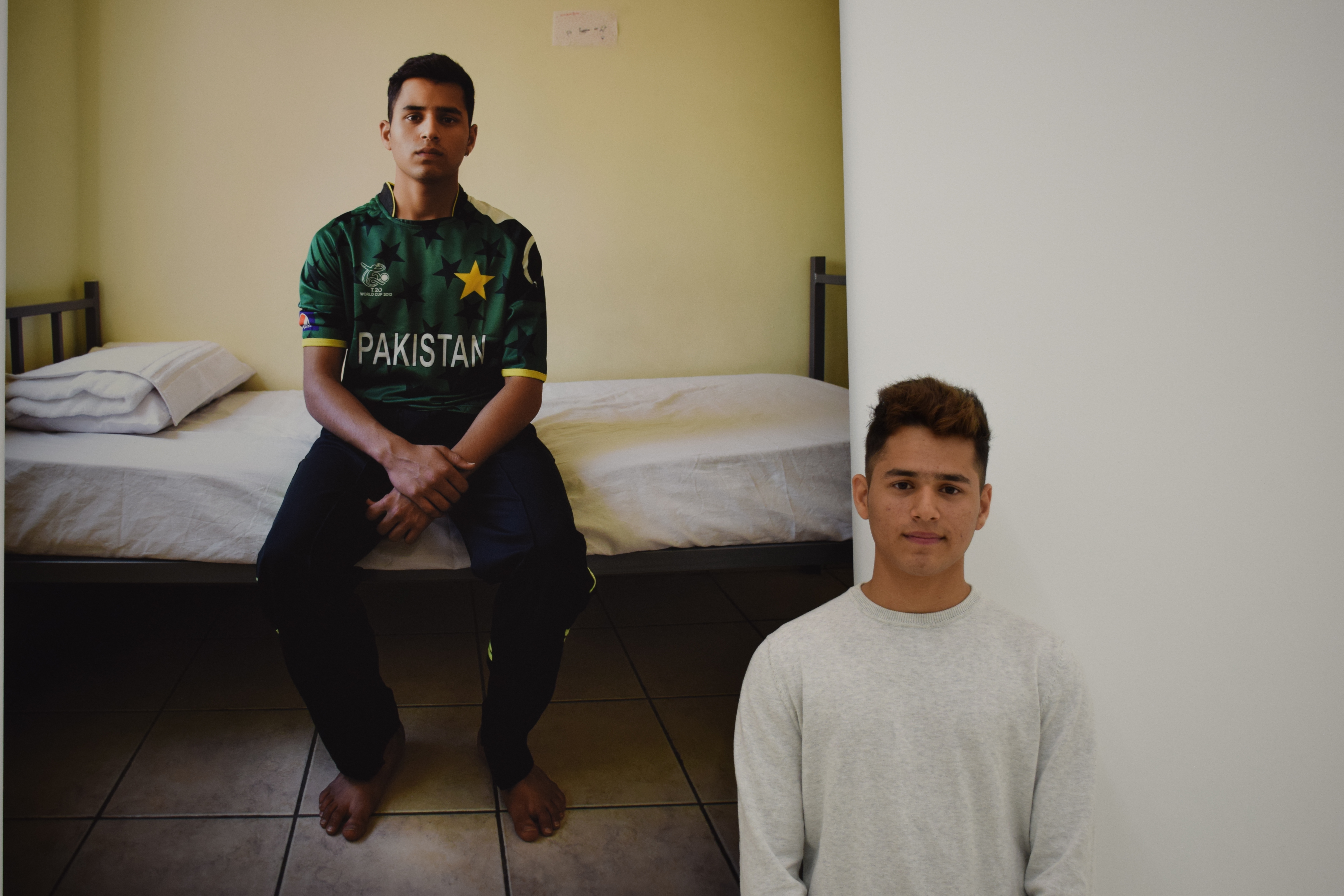January 13th, 2018: Around 11:45 am, we reached the National Museum of Contemporary Art (EMST), Athens. We were heading to watch an exhibition called ‘Face Forward… into my home’. This exhibition was an interactive art project that shared the stories of several people who had to leave their countries and start their lives in Greece from scratch. These people were from Afghanistan, Cameroon, Congo, Iran, Pakistan, Syria, Tunisia and Zimbabwe. All of us headed to a exhibition room that included portraits of 20 asylum seekers along with an mp3 player that had short audio recordings in Arabic, English and Greek. These recordings were a brief documentary of the lives and journey of these asylum seekers to Greece and how are they coping with it now. We spent almost half an hour listening to these stories while looking at the portraits. Luckily, we had a chance to meet two of the people in the portraits: Hassan and Mahdi who talked to us in person.
Hassan talks:

Something that really caught our attention was Hassan’s story. Hassan was an 18 years old boy who was born in Gujranwala, a commercial city in Pakistan. He left the country two years ago and has been living in Greece as a refugee after claiming that his life was threatened by taliban. After Hassan talked to all the people in the exhibition, a group of urdu/hindi speakers among us went to him and started asking questions which led to a heated debate between us. Turns out that Hassan had no danger from the taliban but left the country because of personal issues. One side of the debate supported Hassan’s story and acknowledged his hardships whereas the other side was skeptical of his story and disapproved of the way he chose to enter Greece. There were several questions raised during these discussions such as is it fine to make up a situation like taliban attack to get out from a country for personal reasons? How can this impact the repute of the Pakistan and its nationals? Where do we draw a line between economic migrants and refugees? Is Hassan really a ‘hero’ he seemed to be portrayed as? Most of these difficult questions were left unanswered but they had left us thinking about this idea of legal limbo. Where can we put Hassan within the legal limbo if we have to?